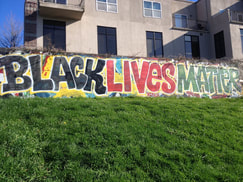 Image: Pixabay, Creative Commons CC0
Image: Pixabay, Creative Commons CC0
 Image: Pixabay, Creative Commons CC0 Image: Pixabay, Creative Commons CC0 John Diaz explains in the San Francisco Chronicle how human lives are not considered equal in our society: "'All life is precious' goes the oft-repeated saying. But let's be honest with ourselves: In this society the value of a human life in the eyes of others is multiplied or discounted in many ways. One of them, obviously, is class. Another, undeniably, is race. And then there is the other, harder to measure variable that sometimes incorporates, but often transcends, race and class: Our ability to empathize with another human being, and measure his or her worth in ways that have nothing to do with earning potential, number of Facebook friends or volunteer hours at the local food bank."
0 Comments
 Image: Pixabay, Creative Commons, CC0 Image: Pixabay, Creative Commons, CC0 BountifulChurchyards.org is kicking off an effort to utilize church property to produce food for those without enough. "The primary Mission of BountifulChurchyards.org, currently in the incorporation and pre-launch phase (formal launch date 01/15/2014), will be to increase access for those facing food insecurity to lands not otherwise available to them, such as churchyards and similar spaces, to raise or glean their own food. A secondary Mission of BountifulChurchYards.org will be to provide employment opportunities for at-risk youth, immigrants, seniors or under-resourced populations." 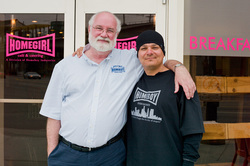 G-Dog ("Nothing stops a bullet like a job"), a movie about Fr. Greg Boyle, S.J. and Homeboy Industries is now available on DVD. You can also read an excellent in-depth article about Boyle from the May 2012 issue of Fast Company. 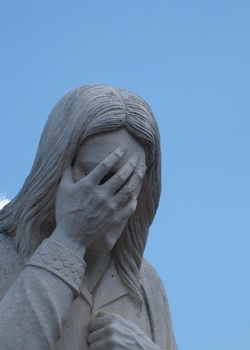 Mark Sandlin offers two lists on Sojourners: "Lots of people claim to be 'following Jesus' and then they do stuff like this. Sure, people who follow Jesus do these things all the time, but you can't say you are doing them because you are trying to follow Jesus' example." The first is simply 10 Things You Can't Do While Following Jesus, while the follow-up is 10 POLITICAL Things You Can't Do While Following Jesus.
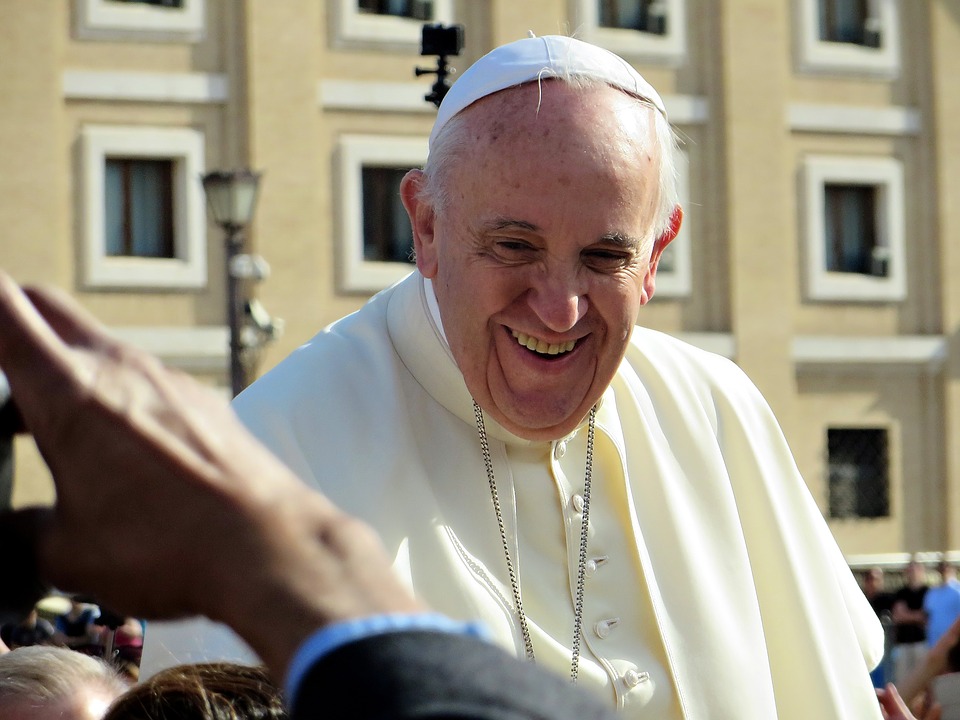 Photo: Pixabay, Creative Commons CC0 Photo: Pixabay, Creative Commons CC0 Pope Francis forcefully denounced an idolatrous culture based on money, highlighting consumption, a "culture of disposal," the rich-poor gap, and lack of financial ethics. The Catholic News Service reports: Pope Francis called for global financial reform that respects human dignity, helps the poor, promotes the common good and allows states to regulate markets. 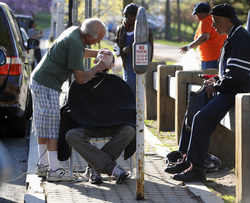 A retired 82-year-old barber has been offering free haircuts to the homeless at a Connecticut park for the past 25 years. All he asks for is a hug in return. He was originally motivated to start by a church sermon. The Huffington Post reports: His clients line up on park benches, some of them also turning out for free meals provided on Wednesdays by a local church. One by one they take a seat in a folding lawn chair above a car battery Cymerys uses to power his clippers.  BoingBoing.net passes on an article: "Writing in The Atlantic, Amy Schiller documents how Mattel has spent the past 15 years transforming the expensive, highly detailed American Girl dolls from a source of radical inspiration that signposted moments in the history of the struggles for justice and equality in the US, into posh upper-middle-class girls who raise money for bake sales. As Lenore Skenazy points out, the original American Girls were children who had wild adventures without adult oversight; the new crop are helicopter-parented and sheltered, and their idea of high adventure is a closely supervised day in the snow." ... the original dolls confronted some of the most heated issues of their respective times. In the book A Lesson for Samantha, she wins an essay contest at her elite academy with a pro-manufacturing message, but after conversations with Nellie, her best friend from a destitute background who has younger siblings working in brutal factory jobs, Samantha reverses course and ends us giving a speech against child labor in factories at the award ceremony. Given the class divide, Samantha's speech presumably takes place in front of the very industrial barons responsible for those factory conditions. The book is a bravura effort at teaching young girls about class privilege, speaking truth to power, and engaging with controversial social policy, all based on empathetic encounters with people whose life experiences differ from her own. In this TED talk, Bono outlines the substantial progress that has been made toward reducing poverty and how trends point toward eradicate poverty in our lifetime, if we remain committed to that goal. Human beings have been campaigning against inequality and poverty for 3,000 years. But this journey is accelerating. Bono "embraces his inner nerd" and shares inspiring data that shows the end of poverty is in sight … if we can harness the momentum. The Greater Good Science Center at U.C. Berkeley reports on the phenomenon of "compassion collapse" (why we feel more compassion for one suffering person than for many), and how we can increase our compassion: We find that when there are more suffering victims, people think they will feel more compassion. Given this expectation, people may become concerned about the financial and emotional costs of intense compassion. Compassion for many victims can be seen as an expensive proposition—one that will not make much of a difference. People may also become worried about being overwhelmed or burned out by compassion for many sufferers. |

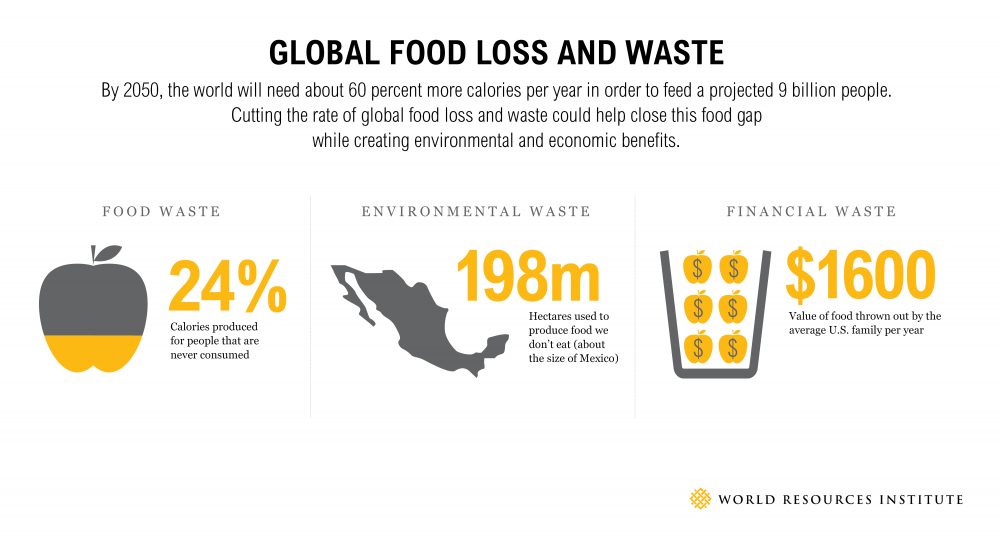
 RSS Feed
RSS Feed
